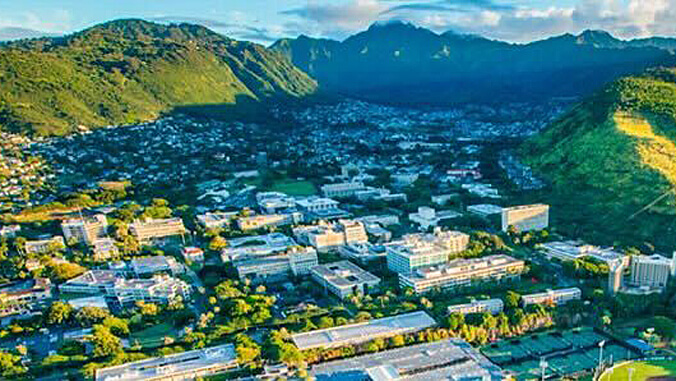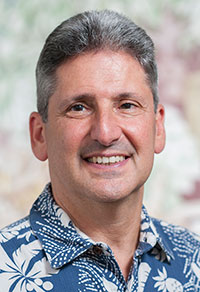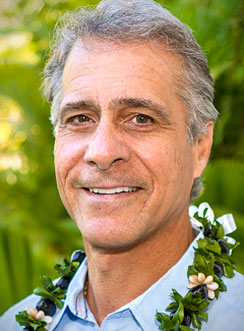
This message was shared with all University of Hawaiʻi at Mānoa faculty, staff and students on March 27, 2024.
Aloha UH Mānoa ʻOhana,
Midway through this spring 2024 semester, we want to take a moment to recognize all that engages you—from the opportunities you are seizing to the challenges you may be facing both locally and from events around the world. In January we wrote to recognize the complicated and complex situations of 2024, from Maui to Israel and Gaza. The impacts of these horrors are still with us and it does not appear they will go away anytime soon.


While we may not be able to change what happens on the ground elsewhere, we are grateful for all the ways we continue to see our ʻohana taking care of one another; the ways we see our community reaching out to those in need, leaning into difficult conversations, being courageous and sharing alternative perspectives, and strengthening connections even amongst difference and uniqueness. This is what makes UH Mānoa so amazing.
We also recognize the obvious—that not all interactions on our beloved campus are kind and caring. We know that the legally-protected words and views articulated by some cause others to feel hurt. While circumstances were different, that is one of the motivations for our initiative beginning in 2017 to become a Truth, Racial Healing, and Transformation™ (TRHT) Campus Center, because we wanted to deepen our commitment as a university to prepare the next generation of leaders to break down systemic racism and dismantle the belief that some lives are more valued than others. We see this manifest in multiple ways globally including but not limited to anti-semitism, islamaphobia, anti-blackness, homophobia, ageism, ableism, gendered violence and more. Locally we see anti-indigeneity and discrimination against our own Pacific neighbors here. This list is not exhaustive, but intended to say that we recognize that there are multiple forms of entangled separation and discrimination that permeate society today and that there is much work to do to heal and honor our common humanity rather than revel in differences.
With that in mind, we are proud to announce campus programming to help us strengthen our pilina—relationships, connections— even through conflict and difference. In particular, two themes that we hope can bring people together will be the focus of programming this semester: safety and speech. We have heard you loud and clear that the speech of some, inside and outside of the classroom, makes others feel personally disrespected, uncomfortable and potentially unsafe. Speech that hurts people is often protected as free speech or justified as academic freedom. But not everything that can legally be said, should be said.
There are always approaches to sharing diametrically opposed views in respectful ways. And part of our kuleana as an institution of higher education is to help our entire community learn how to communicate without unnecessarily hurting others, which is more effective communication, and also how to respond in the face of disagreement, even hurtful disagreement, without either escalation or damage to one’s self. These are skills that will serve us all well in the world beyond our campus.
These inter-related concepts of safety and speech are so critical to strengthening our commitment to aloha on campus that we are leaning into them in a variety of ways that, consistent with our strategic plan, are grounded in our home, Hawaiʻi. We will draw on resources from near and far, and thank our Native Hawaiian Place of Learning Advancement Office for its leadership and support of these efforts.
Our initial panels on Safety and Teaching in Troubled Times: A conversation for faculty, by faculty are coming up quickly, April 1 and 4 respectively. So please click here to register and to receive the links for the events.
Future events will also consider how we talk about specific areas of disagreement and conflict, such as what we see happening in the Middle East and how that has impacted us on campus.
Also, please visit the E Hoʻomalu Mai webpage to learn more about these and other events and programming:.
Aloha,
David Lassner & Michael Bruno
President & Provost

